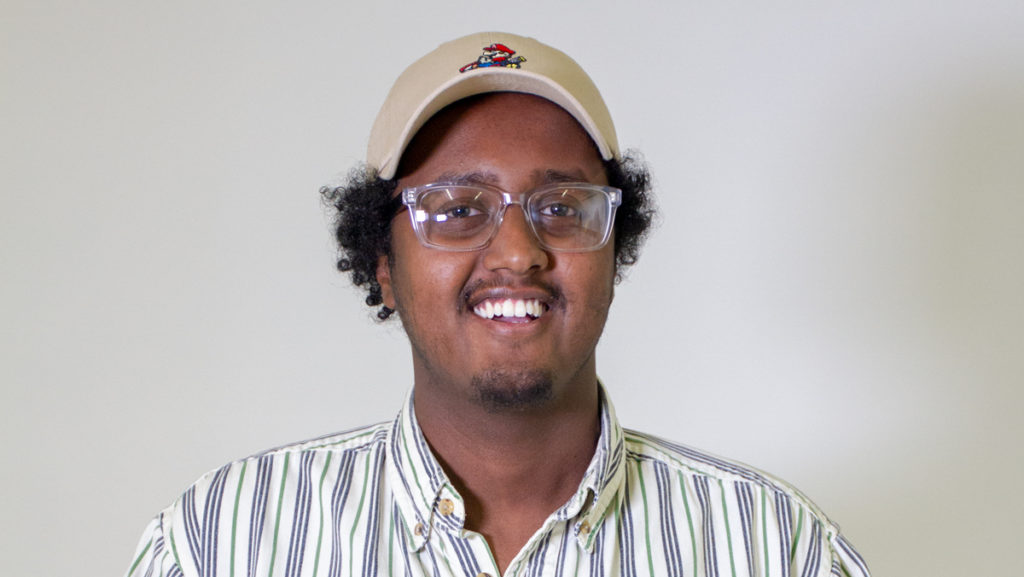Ex-Muslims of North America, known widely as EXMNA, is an advocacy organization devoted to helping former Muslims who have abandoned Islam. On Sept. 20, Sarah Haider, executive director of EXMNA, was interviewed by Bill Maher on his popular HBO late-night show Real Time. I must say, being featured on an award-winning talk show is an incredible feat for a small nonprofit that launched on Reddit a few years ago.
In the summer of 2017, EXMNA saved me from being tortured and possibly killed by Somali religious zealots in Kenya. My atheism and homosexuality were unacceptable to my conservative Muslim parents. They sincerely felt it was a sacred duty to usher me back into the fold of Islam via religious conversion training. Since fleeing Kenya, I’ve tossed myself into the spotlight to not only speak about my experiences but raise awareness about the everyday struggles that ex-Muslims endure.
In addition to dealing with the pain and suffering caused by our disbelief, ex-Muslims often find themselves warding off bigots who use our narratives to spread hatred toward Muslims and Islam.
Some consider Maher one of those bigots, albeit a liberal one. Maher has made spurious remarks about Islam and religious Muslims in the past. Because of his habitual and tedious screeds against religion, I was afraid his interview with Haider would veer into an “Islam is not a religion of peace” session. Thankfully, it didn’t.
Haider got straight to the central ex-Muslim talking point: The vast majority of Muslim countries punish people who say or do anything that might offend orthodox Islamic sensibilities. Skeptics and nonbelievers are perceived as threats to the moral, social and political fabric of countless Muslim societies. Despite legal and societal restrictions, ex-Muslims are now beginning to courageously broadcast their atheistic outlooks in conservative nations like Lebanon.
As our voices penetrate mainstream society, ex-Muslims must be mindful of the way we critique Islam and Muslims.
Oftentimes, our harsh experiences make it difficult to comprehend the disjuncture between what “Islam says” and the actions Muslims take on behalf of their faith. As challenging as it can be, I think ex-Muslim atheists should approach Islam, not merely Muslims, with compassion.
From my perspective, it’s grossly simplistic to depict Islam as this abstract, overarching ideology that’s solely facilitating violence across the globe. Much to my disappointment, prominent atheists that I admire — Sam Harris, Richard Dawkins, Christopher Hitchens — subscribe to this flippant conception of religion. These atheist intellectuals tend to cast all religious ideologies, particularly Islam, as the most intrinsically poisonous and destructive ideologies to enter human history.
Yes, religious beliefs have caused people to commit mass violence. But let’s not act like cherished liberal notions — modernity, progress, human rights — are value-neutral ideologies that must be aggressively adopted by all Muslims. This arrogant certitude fails to recognize the profoundly disturbing fact that science, reason and progress — notions central to secular identities — can also be manipulated to facilitate mass violence.
There’s an abundance of Islamic edicts and practices that seemingly justify abusive practices, especially against gender, sexual and religious minorities. These horrifying practices are to be roundly condemned. Quite frequently, Muslims mistakenly denounce these valid critiques of Islamic theology as “Islamophobic.” I also find this constant cry of “Islamophobia” unhelpful. Merely scrutinizing the logical inconsistencies of Islamic theology shouldn’t translate into a personal attack against Muslims.
To have any productive discussion on faith and politics, we must recognize a fundamental truth: Religious scriptures say what their religious communities decide they mean. I don’t mean to absolve Islamic sources, particularly the Quran, of all blame. Nor do I intend to put forth the relativistic assertion that Islam is simply whatever any Muslim declares it means. Instead, I’m urging fellow outspoken atheists to understand that their crude approach toward religion inadvertently nurtures the sort of fundamentalism they are supposedly against.





